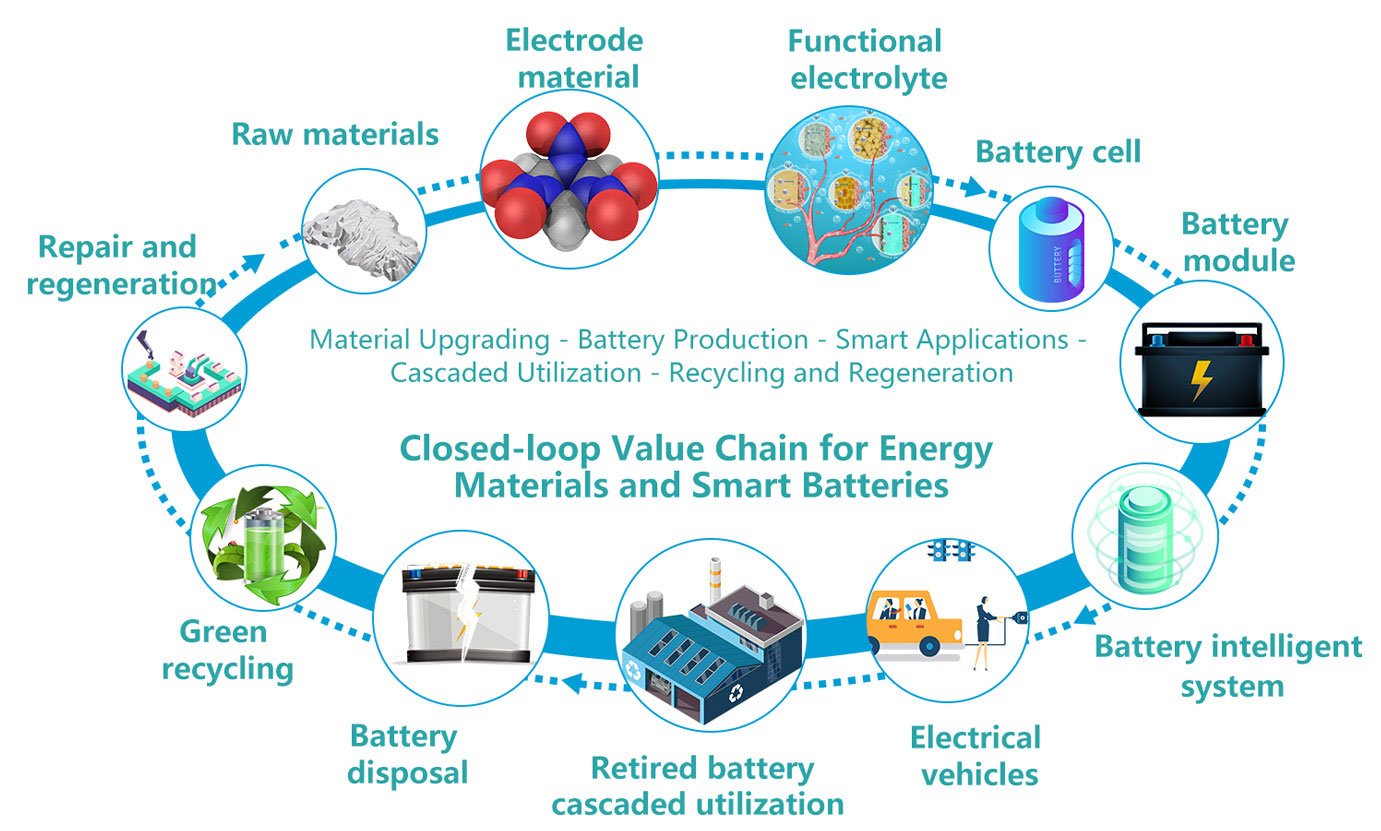Material Innovation
Intelligent Advanced Energy Materials and Device Research Platform
Conduct innovative research and development on new solid-state electrolytes, heterogeneous electrodes, intelligent functional materials for multi-electron batteries, and sustainable green battery materials. Based on the mechanisms of multi-electron reactions and the principles of different reaction systems, research and develop new battery materials. Carry out systematic research and application development for new battery systems such as lithium secondary batteries, metal-air batteries, sodium/potassium/zinc-ion batteries, and achieve engineering design and production of batteries with multiple specifications to enhance battery energy density.



